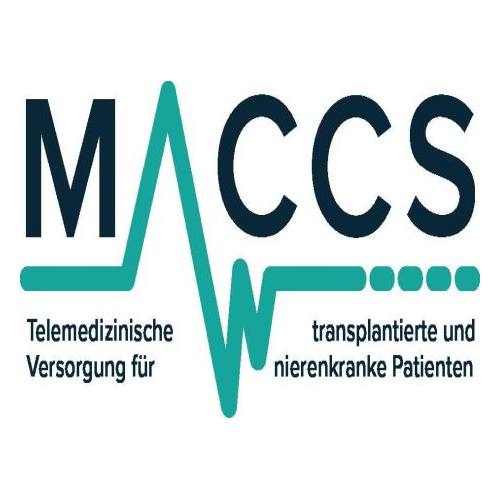Telemedical care for transplant patients and patients with kidney disease
The aim is to provide patients with the best possible support in adhering to therapy specifications, recognizing complications in good time and avoiding them in the long term, and improving the patient’s quality of life.
After a kidney transplant, patients have to stick to a complex therapy regimen for life: On average, eight to twelve tablets have to be taken per day, and certain substances even at a fixed time. Failure to do so can result in serious complications. In the worst case, the transplanted organ is rejected and the function of the transplanted organ is lost. The consequences are lengthy hospital stays and resumption of dialysis.
In addition, the patients have to go to the transplant center for quarterly check-ups, in addition to other specialist consultations. Long journeys are another burden for many patients. In order to counteract this, in the past the care of the patients was alternately taken over by the transplant center and the resident nephrologist. While this reduced travel times, it meant that potentially important information was lost. Without certain complete information, therapy decisions are significantly more difficult or unnecessarily prolonged. Kidney transplant patients are often multimorbid and always immunocompromised. They consult specialists from various disciplines and are more vulnerable to complications of any kind. Therefore, more intensive care that is available at short notice is often necessary.
Functions of MACCS (Medical All-round Care Service Solution)
MACCS represents a modern, intuitive and effective solution for kidney transplant patients with their complex medical requirements. MACCS enables the telemedical connection of our patients for the first time. Video telephony is highly specialized medical care that is easily accessible, flexible and available directly in the home environment. It is carried out in addition to regular follow-up care in the practice and transplant outpatient clinic.
It is our goal to demonstrably improve the treatment of people with a kidney transplant and thus also their quality of life. In order to achieve this, the very close cooperation between patients and their doctors — in practice and in the transplant center — is essential. Patients can only master the many challenges after an organ transplant on their own responsibility and self-determination if there is an intensive exchange between all those involved. Together we do everything to achieve the best possible transplant function with maximum transplant survival.
The most important pillars of the therapy scheme can be documented in an app and monitored by a telemedicine team specially set up for MACCS (vital parameters such as weight, blood pressure, heart rate, temperature). The patient is also given the opportunity to assess their own state of health on a daily basis and to sign off on taking the medication, so that the telemedicine team can remotely obtain an overview of their state of health and adherence to therapy. This leads to a new dimension of security at home, which in turn creates quality of life. If the vital parameters that have been forwarded or the daily intake of medication are outside the normal range, the telemedicine team will contact the patient and inquire about the situation. Depending on the need, this process should lead to a therapy recommendation, an adjustment or change of medication or a trip to an emergency department. The doctors in the kidney transplant outpatient clinic and the participating kidney specialists receive this information.
Another important aspect is the automated digital transfer of information to participating physicians who use Nephro7, the leading practice information system in nephrology. In this way, the doctors involved in the treatment first share the collected laboratory values, medication plans, progress notes and other documents across sectors.
The sensitive patient data is stored in the TBase patient documentation system, which was developed around 20 years ago in cooperation between the Department of Nephrology and the Chair of Artificial Intelligence at the Humboldt University in Berlin. This means that the sensitive patient data that is forwarded via the MACCS platform is stored particularly securely in the Charité data center behind the Charité firewall. Outside the Charité firewall, only pseudonymised data is exchanged via secure HL7 FHIR interfaces. Unencrypted data is then only available to the user on the end devices themselves.
MACSS can support patients in the complex and lifelong therapy and thus avoid complications. The care concept is intended to reduce hospital stays, prevent a rejection reaction of the transplanted kidney and avert a final loss of function of the transplanted kidney.
Source:
https://nephrologie-intensivmedizin.charite.de/forschung/arbeitsgruppen/ag_digitale_nephrologie/

